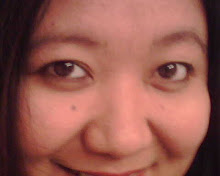Diet for IBS
I had two patients last week who were newly diagnosed with IBS. Both are in their mid 20's and as soon as the doctor told them their diagnosis, they were devastated. One of them even commented that "he's got no life anymore". That prompted me to educate them more about IBS and specifically the diet for IBS.
IBS is Irritable Bowel Syndrome. The most common symptoms of IBS is pain or discomfort in the abdomen often reported as cramping, bloating, gas, diarrhea, and/or constipation. It primarily affects the colon or the large bowel where we store stool. Simply put, IBS means the bowels are not working or functioning correctly.
The things is with IBS, there is no single food that causes IBS. Not unlike celiac disease where you should just be on a gluten free diet and that's it. A flare up of IBS is caused by any food that is high in insoluble fiber, fat, caffeine or alcohol - these are the "trigger foods". They directly affect the muscles in your colon and can lead to pain, gas, constipation and diarrhea.
If you have been suffering from IBS or if you are just recently diagnosed, I suggest that you arm yourself with everything about IBS. The only way to beath the enemy is TO KNOW THE ENEMY. The following are the usual IBS triggers - and yes, some of them you have to completely take out of your diet but no worry there are substitutions (thank GOD!) and some of them you have to eat in small quantities. The top three categories are the following:
1. Red Meat
2. Dairy Products
3. Egg yolk
The very high fat content of the above mentioned at times causes severe spasms which triggers diarrhea and intolerable pain.
So, the key is to have a low fat and high soluble fiber diet. The soluble fiber forms a thick gel which absorbs excess water as it passes through the intestinal tract. This reduction in water helps reduce diarrhea. Plus, the bulky fibrous mass gives the GI muscles something to "hold" during movements that push food along the intestinal passage (called "peristaltic contractions"). Typically, this prevents the uncontrollable bowel movements characteristic of diarrhea.
What are again the foods that needs to be avoided?
Caffeine (found in tea, coffee and soda)
Dairy products
Red meats
Gluten (a protein found in wheat, barley and rye)
Alcohol
Fried foods
Citrus fruits
Chocolate
Any foods high in fat
What foods should you eat on a diet for IBS? Foods high in fiber such as:
Fresh fruits and vegetables.
Beans like kidney beans and lima beans.
Whole-grain breads and cereals.
Also, it is important that when you are on a diet for IBS, you have to eat smaller meals, which will reduce or prevent bloating. Drink plenty of water. Savor your food. Don't eat too quickly - this may cause you to have more gas (because basically you are swallowing more air).
Now, everyone is unique. What maybe fine for Carlos might not be good for John. Not everyone with IBS has problems with all of these foods. It will help a lot if you have a FOOD DIARY so you can list what foods cause your IBS to flare up. Whenever you have problems, make a list of what you ate last. This will enable you to create your own personal list of what you should and should not eat.
A diet for IBS doesn't mean you can't eat foods that you like. It just means you have to pay more attention to what you eat and to what foods trigger your condition.... and only then you will realize that this is not the end of the world =)
"Caring is the essence of nursing." ~Leninger, 1984

No comments:
Post a Comment